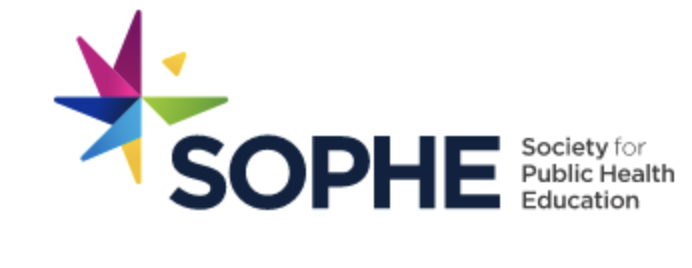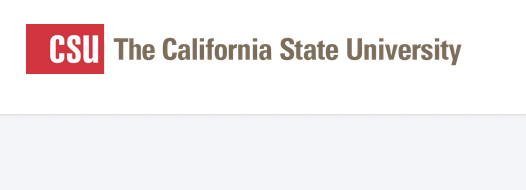https://rayfellowship.org/program-positions/539
RAY Conservation Diversity Fellow: Ocean Conservation Fellow
POSITION TITLE: RAY Conservation Diversity Fellow: Ocean Conservation Fellow
DEPARTMENT/PROGRAM: California Oceans Program
REPORTS TO: Dr. Mary Gleason, Director of Science
STATUS: Regular, Full-Time
LOCATION: The Nature Conservancy Office, Sacramento, California
ABOUT THE ROGER ARLINER YOUNG DIVERSITY FELLOWSHIP
Inspired by efforts to increase racial diversity in conservation and clean energy, the Roger Arliner Young (RAY) Diversity Fellowship Program aims to increase and facilitate environmentally related career pathways for emerging leaders of color. The RAY Fellowship Program is a paid fellowship designed to equip recent college graduates with the tools, experiences, support, and community they need to become leaders in the conservation and clean energy sectors—one that, in our visions of the future, fully represents, includes, and is led by the diverse communities, perspectives, and experiences of the United States.
ABOUT THE NATURE CONSERVANCY
Founded in 1951, The Nature Conservancy (“Conservancy”) is a global conservation organization dedicated to conserving the lands and waters on which all life depends. Guided by science, we create innovative, on-the-ground solutions to our world’s toughest challenges so that nature and people can thrive together. We are tackling climate change, conserving lands, waters and oceans at unprecedented scale, providing food and water sustainably and helping make cities more sustainable.
One of the Conservancy’s core values is our commitment to diversity. Therefore, we strive for a globally diverse and culturally competent workforce. Working in 72 countries and all 50 states in the United States, we use a collaborative approach that engages local communities, governments, the private sector, and other partners. The California chapter of the Conservancy is dedicated to principles of diversity, equity, inclusion, and justice (DEIJ) within our organization and in our work. We value the unique perspectives and experiences the Fellow will bring to our organization and we are committed to making the Ray Conservation Fellowship opportunity one that is welcoming, inclusive, and beneficial to the Fellow. We are an organization that is learning and growing, and we are working to focus our efforts more on how we can make TNC a more inclusive workplace where all staff can feel comfortable bringing their whole selves to work. We are also committed to understanding how DEIJ issues intersect with our conservation work and learning more about how our work can better reflect DEIJ principles.
The California chapter of the Conservancy is the largest chapter and has approximately 230 staff working across the state to advance bold conservation initiatives. The California Oceans Program, in which the Ray Conservation Fellow would be embedded, is a dynamic, close-knit, hard-working, and fun-loving team with about 15 members with expertise in ocean conservation practice, policy, and science. We worked closely with other departments within the Conservancy, and with a broad array of external partners and stakeholders to advance ocean conservation initiatives in California and beyond. Our team’s conservation engagements primarily target (1) kelp conservation, including kelp mapping, management, and restoration; (2) fisheries reform, with a focus on climate-ready fisheries strategies; (3) island resilience, with a focus on restoring island ecosystems and climate adaptation; (4) reducing ocean plastic pollution, including source reduction, recycling, and recovery; and (5) the scoping and evaluation of emerging conservation issues that affect the coastal and marine ecosystems (e.g. renewable energy, climate change, aquaculture, etc.).
The California Oceans Program is well integrated into the broader chapter, so the RAY Conservation Fellow would have opportunities to learn about and engage with a broad array of conservation staff working on the most important conservation challenges. The Oceans Program staff are dispersed geographically around the state, but we get together virtually and in person as often as possible. Being based in Sacramento, the California state capital, will provide an opportunity for the Fellow to get broad exposure to Conservancy staff engaged in ocean and other related policy and advocacy at the state level.
POSITION SUMMARY
The RAY Conservation Fellow will play an important supporting role within the Conservancy’s California Oceans Program – working across conservation practices, policy, and science components to help design and implement our priority ocean conservation strategies. The Fellow will gain valuable cross-disciplinary experience and exposure to the full range of activities involved in designing and implementing conservation actions to achieve conservation outcomes in the ocean. As part of this team, the Fellow will bring their unique perspective to help address conservation challenges and to ensure that conservation solutions and messaging better resonate with all Californians. The Fellow will need to bring a keen interest in conservation, good communication skills, ability to work well with others, and a strong sense of teamwork. The Fellow will be a part of a dynamic team that is achieving big ocean conservation wins.
The RAY Conservation Fellow will work within the Conservancy’s Oceans Program to support existing conservation strategies focused on ocean protection, fisheries reform, kelp conservation, and island resilience. They will provide programmatic, policy and technical support for the key strategies that are part of the Oceans Program. The Fellow will gain exposure to many issues in ocean conservation by contributing to a variety of project teams in the development and implementation of conservation strategies. Working with science staff, they will conduct literature and expert reviews and desktop analyses on emerging issues such as ocean plastics pollution, climate change, and renewable energy that represent important threats to coastal and marine ecosystems, to inform potential opportunities for Conservancy engagement. They will work with Conservancy staff who are engaged with policy and advocacy work at the state level. They will also engage with other Conservancy teams, working on government relations, marketing, fundraising, etc., as required.
In addition, the RAY Conservation Fellow will be assigned specific focused projects within one conservation strategy that will allow them to have a deeper and more outcome focused role (with mentoring and management). This will provide the opportunity for the Fellow to develop specific products or deliverables to support conservation priorities and will allow the Fellow to gain deeper understanding and show leadership on specific projects. The specific project or strategy will be determined in collaboration with the Fellow and based on capacity needs of the program and the skills and interests of the Fellow.
The Fellow will benefit from broad exposure to the science, practice, and business of conservation at a large NGO, while embedded in a dynamic, fun, and supportive team. Being based in one of the Conservancy’s largest offices in Sacramento, they will have an opportunity to engage with, and be mentored by, enthusiastic staff with a range of expertise and diversity of experiences. The Fellow will have the opportunity to benefit from training opportunities afforded Conservancy staff, some fieldwork opportunities, travel for meetings and events, and visits to Conservancy nature preserves in California.
PRIMARY RESPONSIBILITIES
The RAY Conservation Fellow will perform a variety of tasks that support the implementation of conservation and science work plans within the California Chapter’s Ocean Program. The Fellow will:
- Provide programmatic and technical support to all Ocean program strategies.
- Lead on the implementation of 1-2 focused conservation projects with explicit deliverables/outcomes each year.
- Help to coordinate Ocean Program activities and deliverables.
- Conduct literature reviews and research to support the development of strategic documents, workshops, and communication materials to meet conservation objectives.
- Work with oceans team leads to track emerging ocean conservation issues and conduct desktop research to support conservation efforts.
- Work with oceans team leads to develop, track, and coordinate ocean policy efforts, including efforts to reduce ocean plastic pollution, reform fisheries, and conserve kelp ecosystems.
- Help to develop ocean conservation communication materials for raising public awareness and donor communications.
- Organize and coordinate meetings with internal and external partners.
- Perform occasional fieldwork, sometimes with partners, to support priority science engagements.
ADDITIONAL FELLOWSHIP RESPONSIBILITIES
In addition to the responsibilities at the host institution outlined above, RAY Fellows will spend, on average, 2-4 hours per week (5-10% of work time) on the following:
- Actively communicating and building community with their RAY Fellow cohort and previous RAY Fellows.
- Attending monthly check-ins calls (including 1-on-1 check-ins with RAY program staff and group calls with their RAY Fellow cohort).
- Meeting regularly with mentors both inside and outside the host institution.
- Attending monthly professional development webinars, trainings, and other opportunities to build knowledge and skills.
- Developing a Personal Leadership Plan (PLP) in their 2nd year with the support of supervisor(s), mentors, RAY program staff, and their RAY Fellow cohort. The PLP will serve as a tool for self-reflection, planning, and assessing progress towards professional, personal, and leadership goals.
- Preparing and leading an hour-long end-of-fellowship webinar highlighting their Fellowship experience.
RAY Fellows will also attend:
- A 3-day Orientation Retreat in August 2021.
- A 3-day Mid-Fellowship Leadership Retreat in August 2022.
- At least one other training or workshop with their RAY Fellow cohort.
APPLICANT ELIGIBILITY
Eligible RAY Fellow applicants will:
- Come from a racial / ethnic background underrepresented in conservation and clean energy and demonstrate a commitment to the values of diversity, equity, and inclusion.
- Be no more than 1 year out of college and have a bachelor’s degree by July 2021 (we are not considering individuals with graduate degrees at this time).
- Have not had a full-time job in conservation or clean energy.
- Have the ability to work in the United States and commit to the entire fellowship.
SKILLS / QUALIFICATIONS / EXPERIENCE
- A college degree by the time of employment.
- An interest in the field of conservation.
- Demonstrated intellect and leadership.
- Effective written and verbal communication skills.
- An eagerness to learn.
- Multicultural and multilingual skills appreciated.
- Ability to work independently and exercise independent judgment.
- Experience managing and prioritizing tasks from multiple sources.
- Time management skills.
TERM / LENGTH OF ASSIGNMENT
This is a two-year, full-time fellowship (one year with a one-year renewal) starting on or after July 15, 2021.
COMPENSATION
The Fellowship is compensated and sponsored by The Nature Conservancy in California who offers a competitive benefits package as well as training and professional development opportunities. See our TNC Values Statement here for more information.
We encourage you to explore the many great reasons to join our team, including our comprehensive benefits package that includes 12 days of sick leave, 10 days of Paid Time Off to start, 40 days of paid parental leave, developmental opportunities, and more. To learn more about our benefits, click here.
HOW TO APPLY/APPLICATION
To apply for the RAY Fellowship Program, applicants must:
- Complete the online application survey on the RAY Fellowship Program website: https://rayfellowship.org/apply
- Follow the instructions on the linked application webpage to submit a curriculum vitae or a resume, responses to one essay, one visioning, and one short answer prompt, and a letter of support.
Applications must be submitted to the RAY Fellowship Program no later than March 28, 2021. Transcripts and additional writing samples are not required. Questions about the application process can be submitted to the RAY Conservation Program Manager, Guilu Murphy, via email at guilu@elpnet.org.
The Nature Conservancy is an Equal Opportunity Employer. Our commitment to diversity includes the recognition that our conservation mission is best advanced by the leadership and contributions of people of diverse backgrounds, beliefs and cultures. Recruiting and mentoring staff to create an inclusive organization that reflects our global character is a priority and we encourage applicants from all cultures, races, colors, religions, sexes, national or regional origins, ages, disability status, sexual orientations, gender identities, military or veteran status or other status protected by law. The Nature Conservancy is also a “big tent” organization. We believe that all people benefit from conservation and that the cause should be inclusive of everyone regardless of their political persuasion. We work hard to make conservation a non-partisan issue through partnerships with stakeholders, elected officials, and industries that span the political spectrum.



